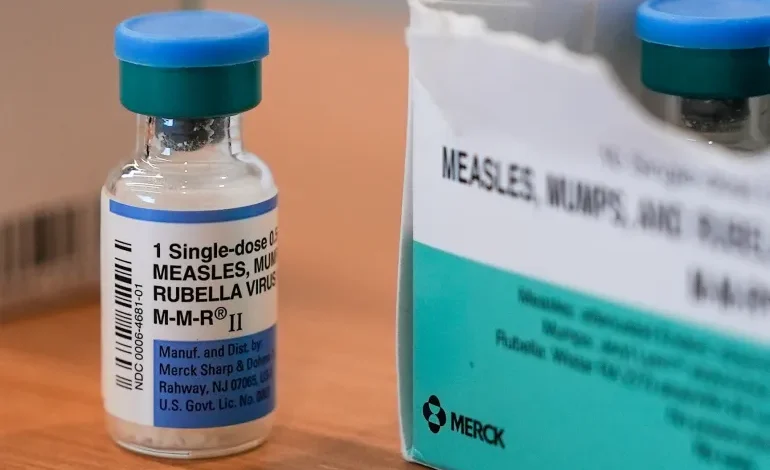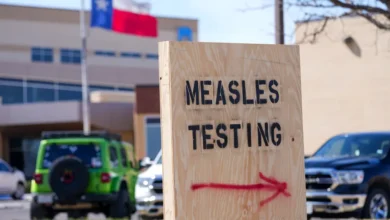Why is measles spreading in Canada, Mexico and the US?

The United States and Canada are experiencing one of their worst measles outbreaks in years, while the virus has also crossed to neighbouring Mexico.
A total of 2,500 cases and four deaths have been reported in the outbreaks across the three countries. Vaccine hesitancy has been blamed.What is measles?
Measles is a highly contagious viral illness that starts with symptoms including high fever, cough, runny nose, red or watery eyes, and sensitivity to light. A few days after infection, a red, blotchy rash typically appears on the face and spreads down the body. Fatigue and loss of appetite are also common.
Most people recover within two to three weeks but complications, particularly in young children and those with weakened immune systems, can be serious.
These include ear infections, diarrhoea, pneumonia and brain swelling (encephalitis) which can lead to permanent disability or death. In wealthier countries, measles causes about one death in every 5,000 cases, but in lower-income regions with weaker healthcare systems, the fatality rate can be as high as one in 100.Before the measles vaccine was introduced in 1963, about 3 to 4 million cases of measles were reported annually in the US, with hundreds of deaths and thousands of hospitalisations. By 2000, following widespread vaccination, measles was declared “eliminated” in the US – meaning there had been no continuous transmission of the disease for more than 12 months. Countries that have eliminated a disease through vaccines are considered to have “herd immunity” as long as vaccines continue to be offered to everyone.
What is herd immunity?
Herd immunity occurs when enough people in a community become immune to a disease, either through vaccination or by recovering from an infection.
The number of people who need to be immune in order to achieve herd immunity for the whole community varies from disease to disease. Measles, which spreads very easily, requires 95 percent of a community to have immunity.
When most people are immune, the disease has a much harder time spreading – meaning it is more likely to die before it can be transmitted to another host. This helps to protect those who cannot be vaccinated for specific reasons, including newborn babies or people with certain health conditions.Experts say the safest way to maintain herd immunity is through vaccination due to the potentially severe effects of a measles infection.
How effective is the measles vaccine?
According to the World Health Organization (WHO), measles vaccination prevented an estimated 31.7 million deaths globally between 2000 and 2020.










